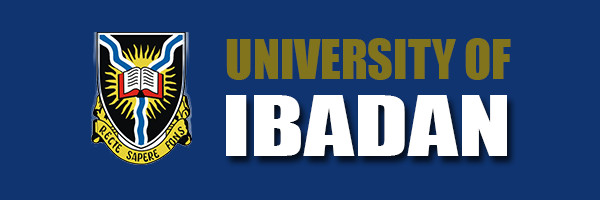UI Mail | Transcript | LMS | JOURNALS | REPORTS AND STATISTICS | UI NELFUND Support
INSTITUTE OF EDUCATIONPROGRAMMES
|
Introduction In addition to this, courses taught in the department are taken by students registered for programmes outside the Department. Such students come mainly from the other Department in the Faculty of Social Science and from the Faculty of Education and Technology.The programme which is normally Expected to last 3-4 sessions, (six – eight semesters), contains comprehensive coverage of courses whose primary purpose is to provide thorough training in both the technique and Application of economic analysis, with particular reference to problems of contemporary Nigeria within the world context. The required courses seek to ensure coverage of the fundamental theory and methods which should be the minimum expected of any economist. The elective courses virtually all branches of economics and business studies and allow for specialization in these fields. |
||||||||||||||||||||||||||||||||||||||||||||||||||||||||||||||||||||||||||||||||||||||||||||||||||||||||||||||||||||||||||||||||||||||||||||||||||||||||||||||||||||||||||||||||||||||||||||||||||||||||||||||||||||||||||||||||||||||||||||||||||||||||||||||||||||||||||||||||||||||||||||||||||||||||||||||||||||||||||||||||||||||||||||||||||||||||||||||||||||||||||||||||||||||||||||||||||||
| General Information All students who wish to take courses in Economics are strongly advised to familiarize themselves with the course system regulations and the Departmental Course System Syllabus. They should consult with their Advisors before proceeding to register for any course. These regulations and syllabus must be carefully studies before registration is effected. 300 level students are particularly advised to carefully study both 300 and 400 level syllabuses and regulations. This is to enable them to rationally select their 300 level courses having in mind what 400 level courses they may wish to take in their final year. |
||||||||||||||||||||||||||||||||||||||||||||||||||||||||||||||||||||||||||||||||||||||||||||||||||||||||||||||||||||||||||||||||||||||||||||||||||||||||||||||||||||||||||||||||||||||||||||||||||||||||||||||||||||||||||||||||||||||||||||||||||||||||||||||||||||||||||||||||||||||||||||||||||||||||||||||||||||||||||||||||||||||||||||||||||||||||||||||||||||||||||||||||||||||||||||||||||||
| Student Societies Students in this Department can, and are encourage to, become members of three student run societies. Each of this societies is identified and its objectives and activities briefly described below: Nigerian Economics Students Association Extra-Curricular Activities |
||||||||||||||||||||||||||||||||||||||||||||||||||||||||||||||||||||||||||||||||||||||||||||||||||||||||||||||||||||||||||||||||||||||||||||||||||||||||||||||||||||||||||||||||||||||||||||||||||||||||||||||||||||||||||||||||||||||||||||||||||||||||||||||||||||||||||||||||||||||||||||||||||||||||||||||||||||||||||||||||||||||||||||||||||||||||||||||||||||||||||||||||||||||||||||||||||||
|
||||||||||||||||||||||||||||||||||||||||||||||||||||||||||||||||||||||||||||||||||||||||||||||||||||||||||||||||||||||||||||||||||||||||||||||||||||||||||||||||||||||||||||||||||||||||||||||||||||||||||||||||||||||||||||||||||||||||||||||||||||||||||||||||||||||||||||||||||||||||||||||||||||||||||||||||||||||||||||||||||||||||||||||||||||||||||||||||||||||||||||||||||||||||||||||||||||
|
||||||||||||||||||||||||||||||||||||||||||||||||||||||||||||||||||||||||||||||||||||||||||||||||||||||||||||||||||||||||||||||||||||||||||||||||||||||||||||||||||||||||||||||||||||||||||||||||||||||||||||||||||||||||||||||||||||||||||||||||||||||||||||||||||||||||||||||||||||||||||||||||||||||||||||||||||||||||||||||||||||||||||||||||||||||||||||||||||||||||||||||||||||||||||||||||||||
